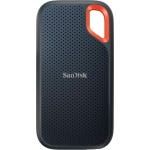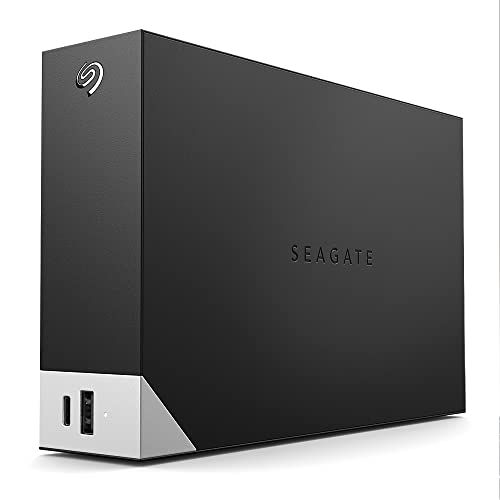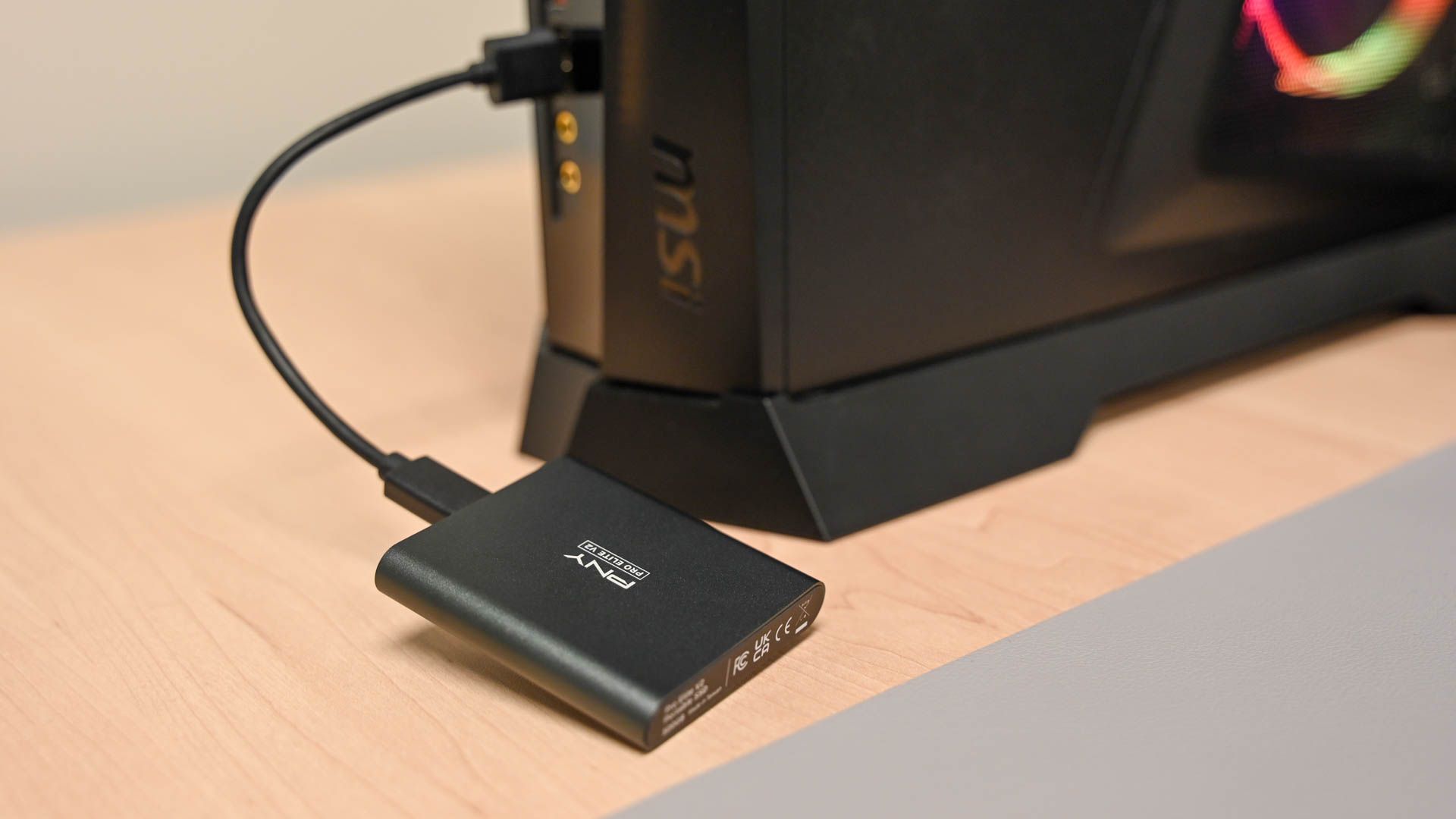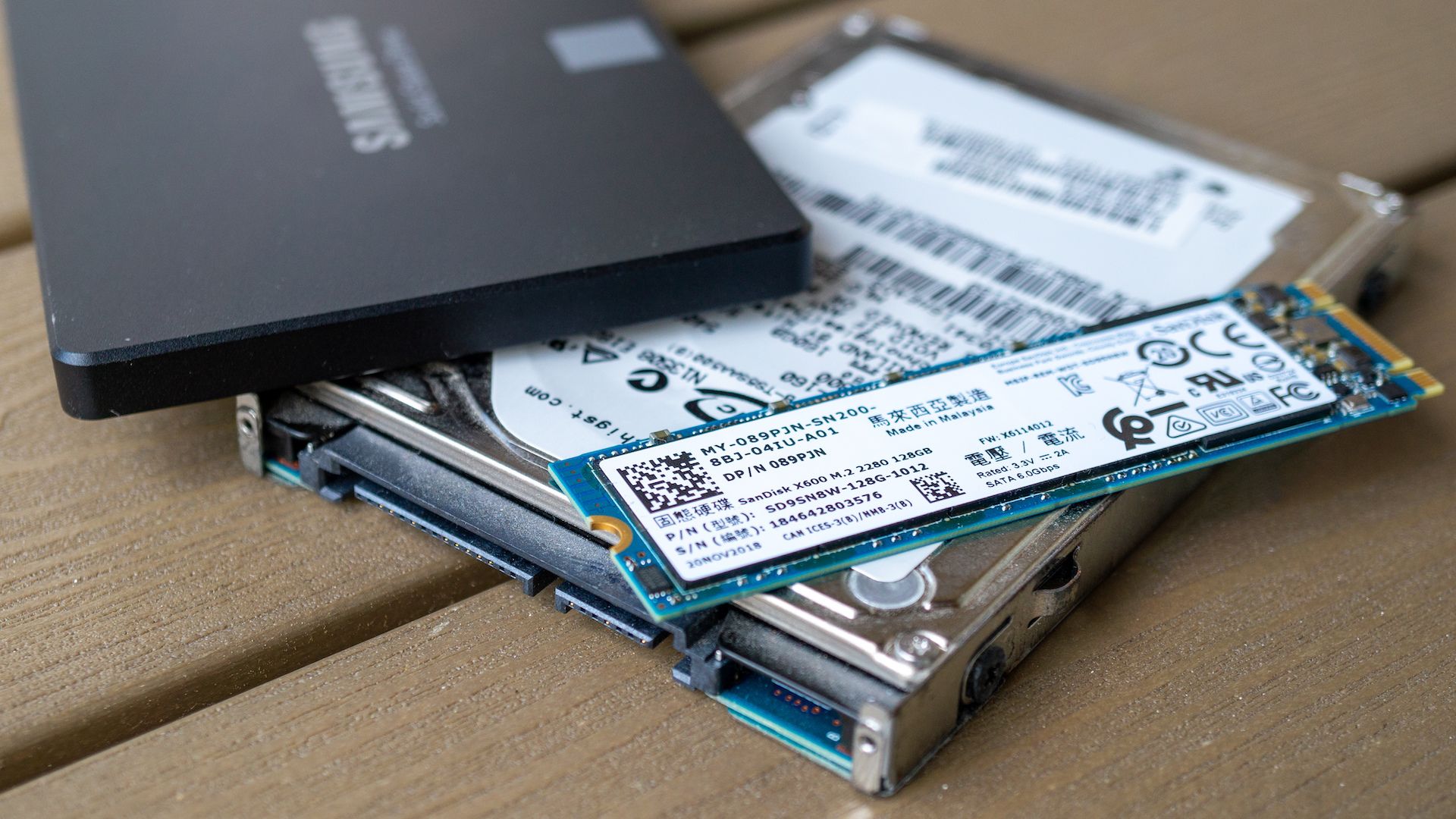Key Takeaways
- SSDs offer faster transfer rates compared to HDDs, making them ideal for users who need higher transfer speeds.
- HDDs may become obsolete as technology advances, making SSDs a safer choice for those who want their external drives to last for several years.
- While HDDs are cheaper in terms of price per gigabyte, SSDs are more resistant to physical damage and offer better overall reliability, making them a better choice for most users.
Solid-state drives (SSDs) are an easy way to speed up old computers. For external storage, however, their faster transfer rates may not matter much against hard disk drives (HDDs). Here are a few factors to consider before deciding.
SSDs (May) Satisfy the Need for Speed
Thunderbolt 4 ports go up to 5,000 GB/s, theoretically at least. USB offers a range of speeds, with the latest USB 4 specifications keeping up with Thunderbolt 4. However, even the best consumer-grade HDDs rarely reach read/write speeds above 150 MB/s. If you need higher transfer rates, you’ll need to get an SSD.

SanDisk Extreme Portable External SSD
A small form factor combined with a rugged design at a $119 means that this little drive will last you a long time.
Also, keep in mind that even solid-state drives have differences. A SATA SSD can reach 500MB/s, sometimes a bit more. NVMe drives double that if using a PCIe 3.0 connection—and go up to almost 8,000MB/s with PCIe 4.0.
HDDs Will Get Obsolete Faster (but Not Soon)
If you’re really worried about future-proofing, HDDs also have the issue of being a very old technology. Consumer-grade SSDs have been around for a bit more than a decade, while hard disks were first used for domestic computers in the late 1980s.
To be fair, HDDs won’t be museum pieces anytime soon. They’re used for lots of applications, both by end users and corporations alike. But, if you plan on keeping your external drive for several years, an SSD is a safer bet as file sizes go up, and HDD transfer speeds may not be enough a decade from now.
SSDs Cost More Per Gigabyte
A huge advantage that HDDs have over SSDs is the price compared to storage capacity. You can get a 1TB SSD from a reputable brand for $60 during sales. But, for that same money, you get 4TB on an HDD.

Seagate One Touch Hub 20TB External HDD
$401 $450 Save $49
The Seagate One Touch Hub is a massive 20 TB external HDD designed to store tons of mixed media, including movies, music, games, and more.
The so-called “price per gigabyte” difference isn’t as favorable to HDDs these days as it was when SSDs started becoming mainstream. But it still exists. Therefore, if your maximum priority is getting the most storage for your money, hard disks are the way to go.
Also, while not particularly affordable, you can purchase a 22TB HDD. SSDs are limited to (very expensive) 8TB disks, and even so, there aren’t many offerings with that much capacity.
SSDs Resist Damage better
One of the main selling points of external storage devices is their portability. But what good is being able to carry your data anywhere if it’s prone to physical shock?
It’s not a good idea to throw an SSD from a 3-story building. That’s not the point. However, an SSD will be less likely to break if something hits your backpack, for example. If the same happens to an HDD, which has moving parts, it might give you the click-of-death treatment the next time you plug it in.
Reliability Differences Are Negligible
A common myth about SSDs is that they wear out faster than HDDs. Then, the opposite argument appeared: solid-state drives were said to be actually more reliable than hard-disk ones.
The feud is about how long a drive endures before throwing the towel. SSDs measure it in “Terabytes Written” (TBW), which measures how much data an SSD can take before wearing out and becoming read-only. HDDs, on the other hand, use workload rates (similar to TBW, but usually measured in TB/year) or Mean Time Between Failures (MTBF, how long it’s expected to survive with average usage).
Turns out that, probably, neither is true, and both storage types are pretty dependable. Well, HDDs and SSDs will eventually fail. But there’s a good chance it takes so much time for it to happen that you will have long since moved to newer disks, with higher capacities.
Comparing HDDs to SSDs Is More Than Capacity Versus Speed
While there’s no exact right answer, we do have enough information to suggest which way to go. It depends on your priorities, but almost always the answer will be the same.
If you want a drive that’s faster, will have long-term support, and is more resistant to physical damage, you should buy an external SSD. As a bonus, it’ll be lighter (and possibly smaller) than a hard disk drive.
There are only two situations when it’s better to buy an external HDD: if you’re really after the best price per gigabyte, and if you want really large drives. However, the advantage in the first scenario keeps getting smaller, and the second one is a very niche case.
Either way, we’re here to help you. Don’t forget to check our guides for the best external HDDs and best external SSDs, both of which are frequently reviewed to keep recommendations up to date.
source

